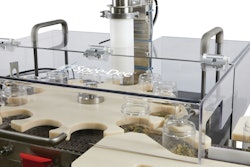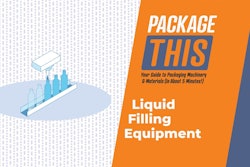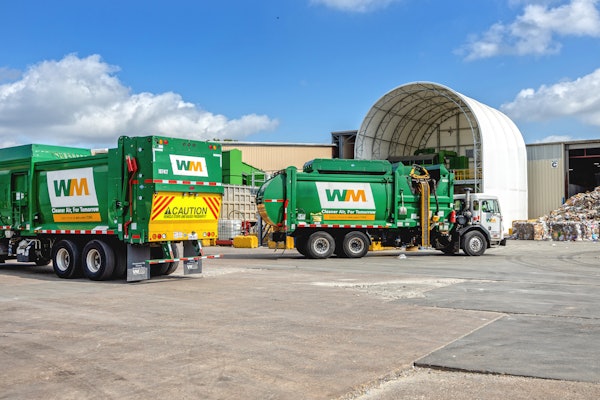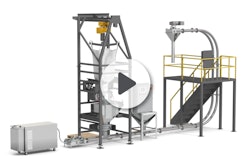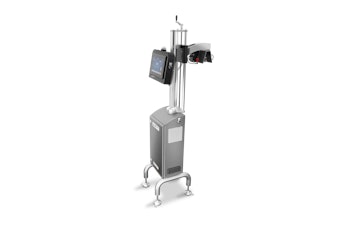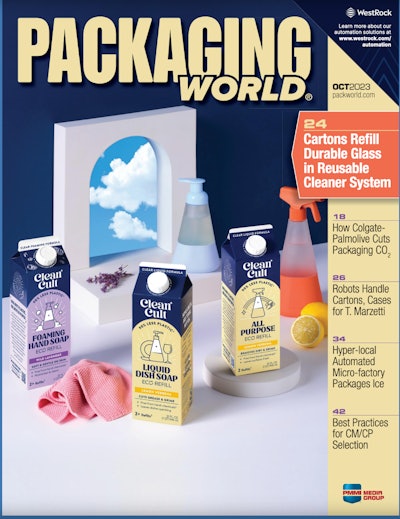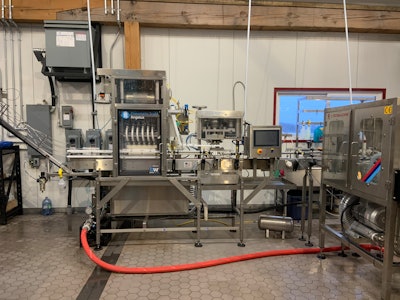
MacKinnon Brothers Brewing Company, founded in 2013, is a farm-based operation, sourcing its fresh ingredients from its own farm and other local farms to produce unique beers. Two of the company’s canned products are made entirely from ingredients grown on its farm. MacKinnon Brothers sells 80 to 85% of its products within a 50 kilometer radius from its facility near Kingston, Ontario. Product is also sold directly from the farm when it hosts concerts and music festivals. A QR code on the cans of harvest ale educates consumers on the growing season, the malt from that season, and how those factors affect the flavor of the beer.
As its business grew, it stated selling canned beer along with its kegged products. To facilitate this, MacKinnon Brothers began bringing in mobile canning in 2015, however, as sales grew, this proved to be cost prohibitive. A few years down the road, the company opened a new production facility with an eye on purchasing its own reliable canning line to increase production, and save costs and time wasted on manual canning. After exploring its options, the company settled on a Pneumatic Scale Angelus (PSA) counter-pressure unit with low dissolved oxygen.
 Front shot of the filler and seamer.
Front shot of the filler and seamer.
Counter-pressure integrated canning line provides precise filling
PSA’s CB50C counter-pressure integrated canning line uses isobarometric counter-pressure technology—for equal pressure between can and product, maintaining carbonation solubility throughout the filling process—coupled with proprietary magnetic flowmeters, to deliver a system capable of one-milliliter filling precision. It employs six individual filling heads and a single-head seamer, and with the fill tank positioned above the fill heads, the product is gravity-fed to decrease the likelihood of agitation causing unwanted reductions in carbonation levels. The line is rated for continuous operation at speeds up to 50 cans per minute.
The purchase was solidified just before the start of the pandemic, and installation was not hindered by the shutdown. “There weren’t any huge issues from COVID in regards to the installation and procurement of the machine,” said Dan MacKinnon, co-owner and head brewer, MacKinnon Brothers Brewing Company. “It was a little trickier to get the folks from PSA up from the States. There was a bit more paperwork than there normally would be.”
 | Operational Success: Productivity Under Pressure |
MacKinnon further explained that the timing was perfect; due to the pandemic-related lockdowns and the resulting distribution challenges, the company was transitioning a large amount of products from kegs to cans, which would have been greatly hindered had installation been slowed.
 The filler is followed by a can rejector that will remove any cans missing lids, an air dryer, a checkweigher, and the tray packer. All sections assembled in house.
The filler is followed by a can rejector that will remove any cans missing lids, an air dryer, a checkweigher, and the tray packer. All sections assembled in house.
Referring to a specific issue the company encountered shortly after installation, MacKinnon said that the infeed was causing the cans to slide into the machine too quickly and not perfectly straight. PSA suggested an improved star wheel infeed of a different size that solved these issues; its programmers connected to MacKinnon Brothers’ internet to program the changes into the line once the new star wheel infeed arrived.
Technicians train and work with operators to speed up production
 The canning line and a depalletizer. The MacKinnon line is running at 40 cans per minute, but the machine is capable of speeds up to 50.
The canning line and a depalletizer. The MacKinnon line is running at 40 cans per minute, but the machine is capable of speeds up to 50.
MacKinnon said the operators took well to the machine. “We were all thrilled to have our own canning line, to see the product moving. You’re really stacking up product and draining those tanks fast with less downtime,” he said. “It’s a better quality of work, better quality of life. [The operators] get to go home earlier. No one wants to sit there packing cans by hand. You want to start up a good machine, can a whole bunch of beer, clean everything up, put the beer away, and still have time for a nice enjoyable time at the end of the day. And I think we’ve finally reached that.”
Gabrielle Charette Le Meur, production operator providing quality control, quality management, and production management, added, “With the machine, we eliminate a lot of jobs that were redundant and I’m thrilled about getting to know more how the machine works as I do problem solving.”
 Accumulation table of MacKinnon tray packer and some of its vessels. The brew system makes 25 hl batches and the company has tanks of 50, 150, and 200 hl.
Accumulation table of MacKinnon tray packer and some of its vessels. The brew system makes 25 hl batches and the company has tanks of 50, 150, and 200 hl.
 | unPACKed Podcast: Emphasis on Ease of Operation at PACK EXPO |


